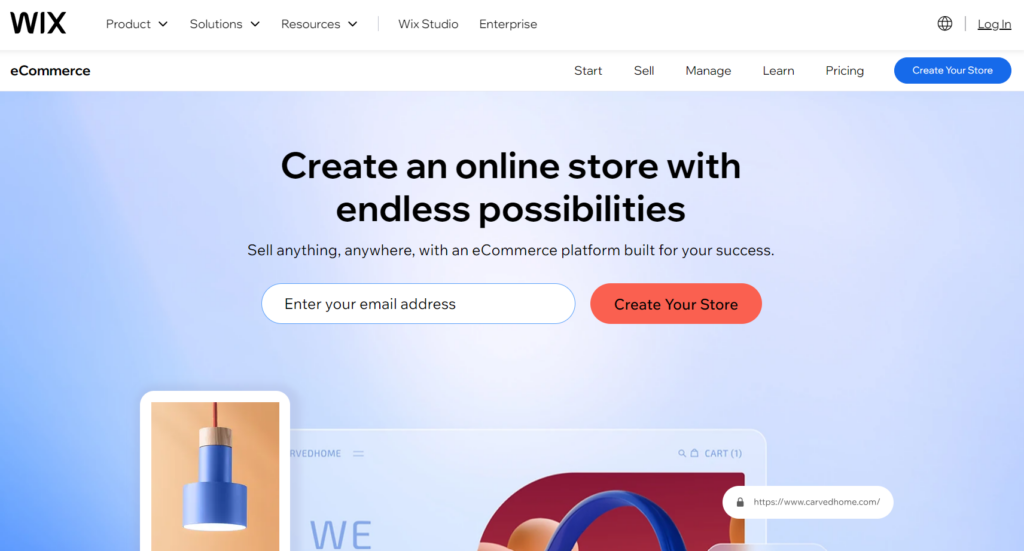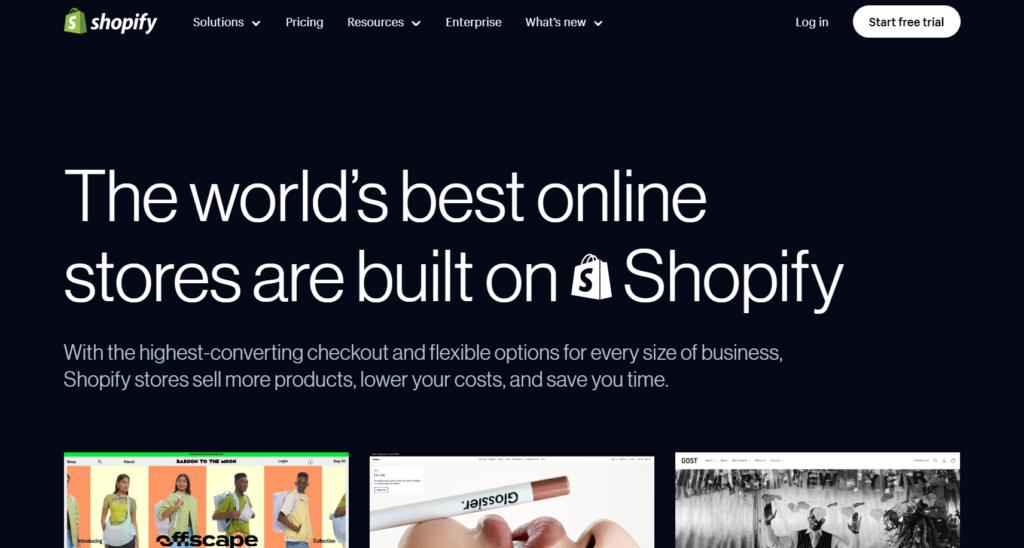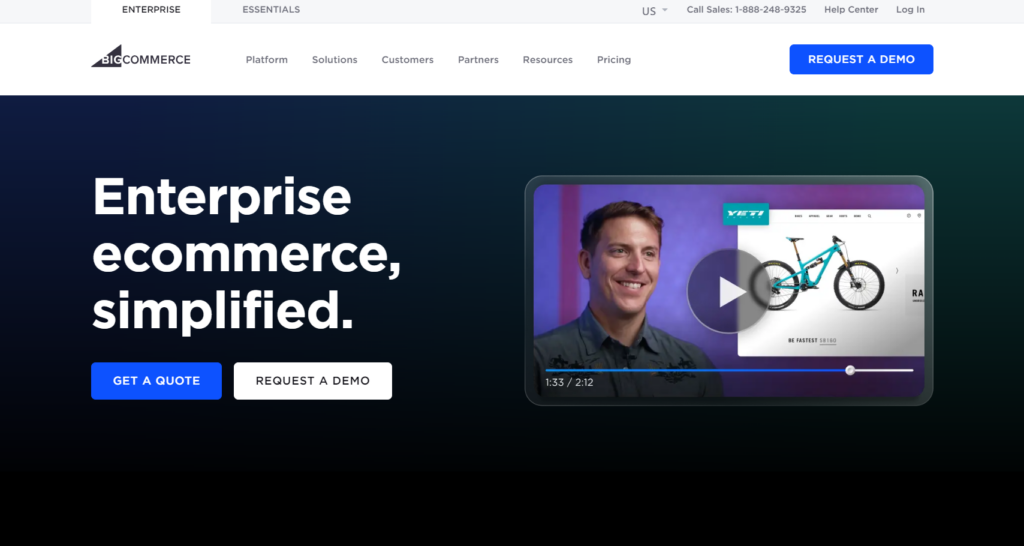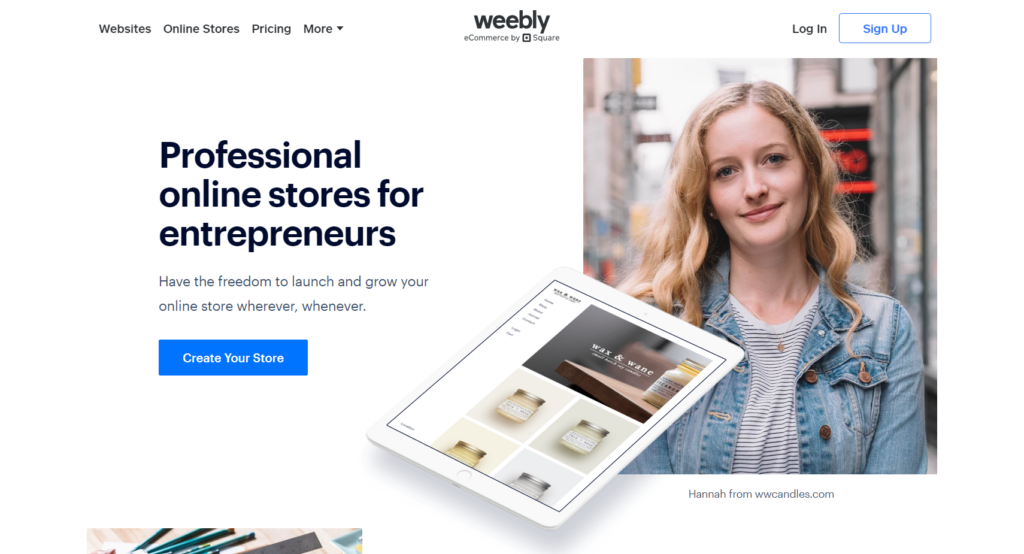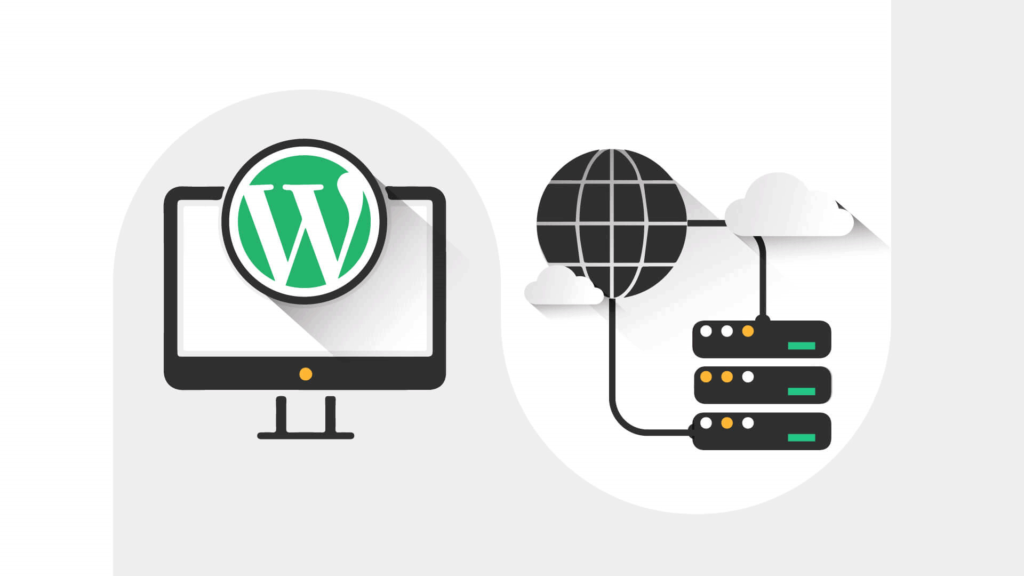Table of Contents
Introduction
Creating an online store has never been easier thanks to modern website builders. With drag-and-drop interfaces and pre-built templates, these tools promise to let you set up an e-commerce site without coding skills. But buyer beware – not all website builders are created equal when it comes to running an online business.
Examine their pros and cons, hidden pitfalls to watch out for, and provide actionable tips to choose the right platform for your needs. By the end, you’ll have a clear picture of which builders truly deliver on their promises – and which ones could leave your online store dead in the water.
1. Wix
Wix stands out for its intuitive drag-and-drop editor and extensive template library, making it easy for beginners to create visually appealing online stores. It offers a good balance of customization options and e-commerce features at a reasonable price point.
- Utilize a highly intuitive visual editor for easy site creation
- Choose from 500+ designer-made templates to fit your brand
- Explore a robust app marketplace for added functionality
- Benefit from integrated payment processing for seamless transactions
- Sell digital products with ease
- Take advantage of strong SEO tools to enhance your site’s visibility
- Understand that you can’t easily switch templates after site launch
- Recognize the limit in inventory management for large catalogs
- Factor in transaction fees on lower-tier plans
- Note the lack of advanced shipping options
Wix is praised for its user-friendly website builder, particularly for e-commerce, with a drag-and-drop interface that simplifies design without coding. It offers over 500 templates, but switching templates later requires a complete rebuild. Wix covers essential e-commerce features well, including product sales, variants, and subscriptions, with good integration for payment gateways and inventory management.
However, its shipping options are basic and may lack advanced features needed as your business grows. While Wix’s SEO capabilities are strong and pricing is competitive, be wary of transaction fees on lower-tier plans, which could impact your profits.
MORE >>> Hostinger vs GoDaddy Web Hosting
2. Squarespace
Choose Squarespace for its stunning, mobile-responsive templates and powerful blogging features. You’ll benefit from a platform that helps you create a cohesive brand image across both your website and online store.
- Select sleek, professional templates to elevate your store’s appearance
- Leverage the strong integration of content and commerce
- Use built-in email marketing tools to engage customers
- Enjoy no transaction fees
- Offers unlimited products on all plans
- Manage images excellently with robust tools
- Navigate a less intuitive editor compared to some competitors
- Consider the limited payment gateway options available
- Address fewer third-party integrations than some rivals
- Be aware that it can be pricier for basic stores
Squarespace delivers visually striking designs with its professional templates, enhancing the look of your e-commerce store from the start. Its integration of content and commerce is a significant strength, offering robust blogging tools and seamless product embedding, as well as built-in email marketing for direct product catalog campaigns.
The platform has a steeper learning curve due to its less intuitive editor compared to Wix. Payment gateway options are more restricted, which could be challenging based on your target market, and there are fewer third-party integrations available. Inventory management is solid, with effective tracking features, and while Squarespace doesn’t charge transaction fees, its pricing may be higher for basic stores compared to some competitors. SEO capabilities are decent, allowing for customization of meta titles, descriptions, URLs, and alt text, but lack the advanced features of platforms like Wix or WordPress.
3. Shopify
Harness the power of Shopify in the e-commerce world. Utilize its comprehensive suite of tools, crafted specifically for online selling. Choose Shopify if you focus primarily on e-commerce and plan for significant growth.
- Leverage robust, scalable e-commerce features
- Explore a large app store for extended functionality
- Utilize multiple sales channels (social media, marketplaces)
- Manage inventory and orders with advanced tools
- Access strong analytics and reporting
- Rely on 24/7 customer support
- Prepare for potentially high monthly fees for small businesses
- Account for transaction fees unless using Shopify Payments
- Navigate limited content management capabilities
- Anticipate significant customization for unique designs
Shopify is tailored for e-commerce, offering comprehensive features for managing inventory, orders, and fulfillment. Its scalability suits both small boutiques and large operations. You can extend its functionality through a vast app store, though relying on multiple apps may increase costs. Leverage its multi-channel selling to expand your reach across social media, marketplaces, and physical stores.
However, its content management tools are basic compared to platforms like Squarespace or WordPress. Shopify’s pricing is higher than many competitors, with additional transaction fees unless using Shopify Payments. Customizing themes may require coding skills or hiring a developer. Strong SEO features allow control over meta tags, URLs, and site structure, with automatic sitemaps and canonical tag management.
4. BigCommerce
Discover BigCommerce, a powerful e-commerce platform designed to deliver a comprehensive suite of built-in features without excessive reliance on apps. Tailored for larger businesses or those managing complex product catalogs, this solution meets your needs with ease and efficiency.
- Benefit from extensive built-in features
- Avoid transaction fees
- Create unlimited staff accounts on all plans
- Enhance SEO with strong tools
- Customize product options and variants flexibly
- Expand with multi-channel selling capabilities
- Adapt to a steeper learning curve
- Watch for annual sales limits on plans
- Select from limited free themes
- Consider that it might be overkill for small, simple stores
BigCommerce stands out with its comprehensive out-of-the-box features, including real-time shipping quotes, advanced tax rules, and product filtering, unlike Shopify, which relies on apps for similar functionalities.
Its robust product management and B2B tools make it ideal for complex catalogs and wholesale needs. However, the platform has a steeper learning curve, with a potentially overwhelming admin interface. Pricing is competitive with no transaction fees, but be mindful of annual sales limits that could lead to automatic upgrades and higher costs.
Theme options are limited, particularly among free choices, so you might need to invest in a premium theme. BigCommerce excels in SEO with customizable URLs, sitemaps, and clean code, and offers strong multi-channel selling support, though integration setup can be more complex.
5. Weebly
Explore Weebly for its intuitive interface and robust e-commerce features, all at a budget-friendly price. You’ll find it an excellent choice for small businesses or individuals who want to launch a straightforward online store without facing a steep learning curve.
- Utilize an easy-to-use drag-and-drop editor
- Enjoy affordable pricing
- Choose from a decent selection of responsive themes
- Access basic e-commerce features included in the free plan
- Eliminate transaction fees on paid plans
- Opt for a good solution for small to medium-sized stores
- Adapt to limited design flexibility
- Recognize basic e-commerce features compared to specialized platforms
- Navigate fewer integrations and apps
- Prepare for limited scalability for large or complex stores
Weebly’s main strength lies in its simplicity, with an intuitive drag-and-drop editor that’s accessible for beginners. Its user-friendly e-commerce features are straightforward to set up and manage. You’ll find a decent selection of responsive themes, though customization options are limited compared to competitors like Wix or Squarespace.
Weebly handles basic e-commerce tasks well, including product management and abandoned cart recovery, but lacks advanced features such as complex shipping rules and sophisticated inventory systems. Its pricing is competitive, with affordable plans and basic e-commerce features available on the free plan, plus no transaction fees on paid plans.
SEO capabilities are decent, allowing for customization of meta titles, descriptions, URLs, and alt text, but lack more advanced tools. The app center is smaller compared to competitors like Shopify or Wix, which might limit functionality if you need specialized features.
PRO TIPS >>> Porkbun Domain Registrar Review
Overview of Website Builders for Online Stores

Website builders have revolutionized the way you can establish an online presence for your small business or entrepreneurial venture. These platforms offer a straightforward way into e-commerce, allowing you to create functional online stores without extensive technical knowledge. However, you need to understand that not all website builders offer the same e-commerce capabilities.
The e-commerce website builder landscape is diverse, ranging from general-purpose platforms with e-commerce add-ons to specialized solutions designed specifically for online selling. For example, platforms like Wix and Squarespace provide a broad range of templates and design options, making them ideal for creating visually appealing sites. However, their e-commerce features, while functional, may not be as advanced as those of dedicated e-commerce platforms.
On the other hand, platforms like Shopify and BigCommerce are built specifically for online selling and offer advanced features such as inventory management, multi-channel selling, and extensive payment gateway options. While these platforms are robust, they might be more than you need if you’re a very small business or just starting out.
Alternatively, platforms like Weebly offer a balance between general website building and e-commerce functionality, making them suitable for businesses that need both content and commerce capabilities.
When selecting a website builder for your online store, consider factors such as ease of use, design flexibility, e-commerce features, scalability, payment processing options, SEO capabilities, integrations, and pricing. The ideal website builder for your online store depends on your specific needs, technical skills, and business goals.
How to Choose a Website Builder for Your Online Store
Selecting the right website builder for your online store is a critical decision that can significantly impact your business’s success. Here’s a step-by-step guide to help you make a better choice:
- Define your business needs
- Determine your budget
- Evaluate e-commerce features
- Look for essential features
- Consider design flexibility
- Check seo capabilities
- Investigate scalability
- Review integration options
- Analyze support and resources
- Test drive the top contenders
- Read user reviews
- Consider long-term costs
GET SMARTER >>> SiteGround WordPress Hosting
Pros & Cons of Website Builders for Online Stores
Understanding the general advantages and disadvantages of using website builders for e-commerce can help you set realistic expectations:
Pros
- Access a user-friendly platform
- Save money with cost-effective solutions
- Set up your store quickly
- Utilize all-in-one solutions
- Benefit from regular updates
- Enjoy responsive design
- Leverage integrated tools
Cons
- Experience limited customization options
- Depend on the platform
- Pay transaction fees
- Navigate feature limitations
- Address performance issues
- Handle SEO constraints
- Manage ongoing costs
What To Watch Out For

When choosing a website builder for your online store, here are a few things to watch out for:
- Assess scalability limits
- Avoid lock-in situations
- Evaluate template limitations
- Address SEO shortcomings
- Review support quality
- Check payment gateway restrictions
- Verify security measures
- Monitor performance issues
- Consider integration limitations
Pro Tips
To make the most of your chosen website builder:- Prioritize mobile optimization
- Leverage built-in SEO tools
- Utilize analytics
- Experiment with A/B testing
- Implement Robust security
- Focus on user experience
- Explore apps and integrations
Recap
Choosing the right website builder for your online store is crucial for e-commerce success. Platforms like Wix, Squarespace, Shopify, BigCommerce, and Weebly each offer unique strengths and limitations.
Wix excels in design flexibility but lacks advanced e-commerce features, while Squarespace provides stunning designs with strong content integration but can be pricier. Shopify is ideal for scalability and comprehensive e-commerce tools but may incur high costs, whereas BigCommerce offers extensive features and B2B capabilities but has a steeper learning curve. Weebly is user-friendly and affordable but may lack advanced features for larger operations.
Remember to evaluate each platform based on ease of use, design flexibility, e-commerce features, scalability, pricing, and other factors, while being mindful of hidden fees and scalability limits.



